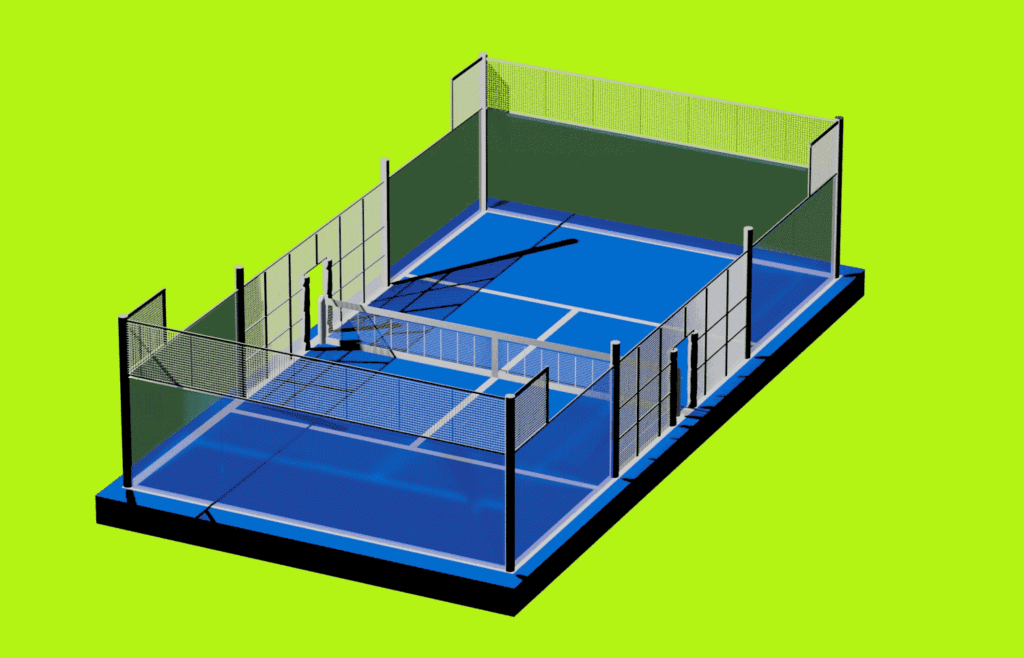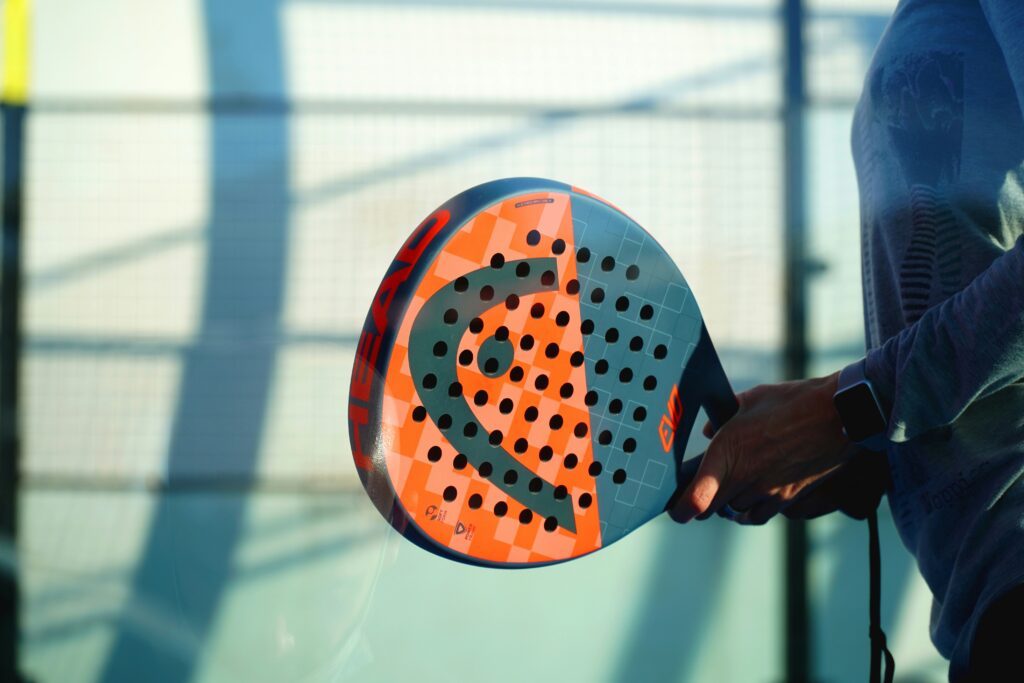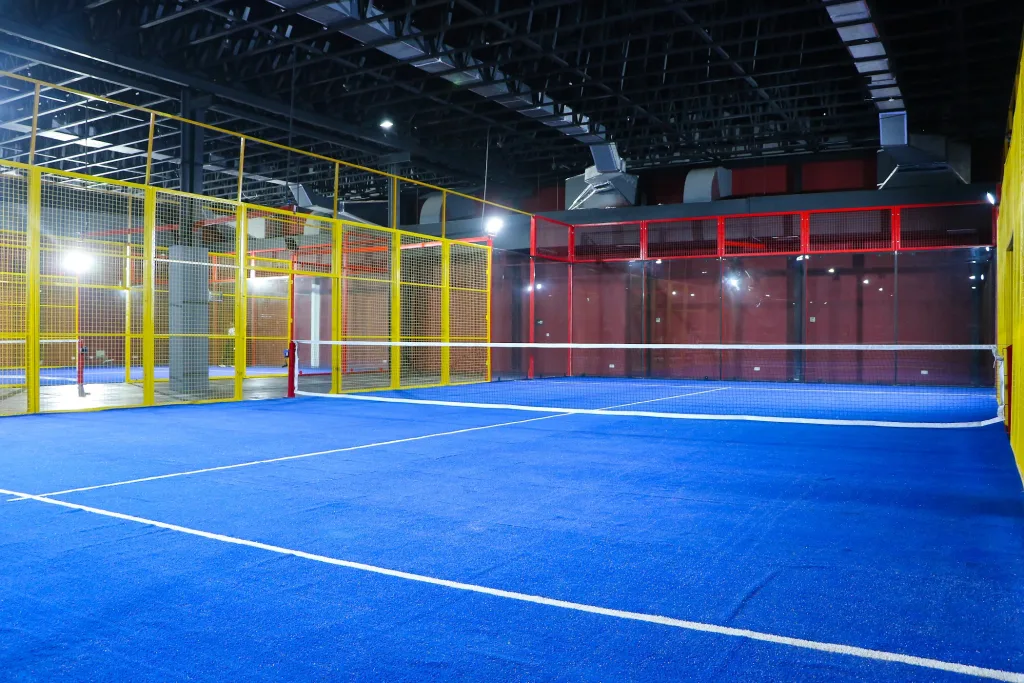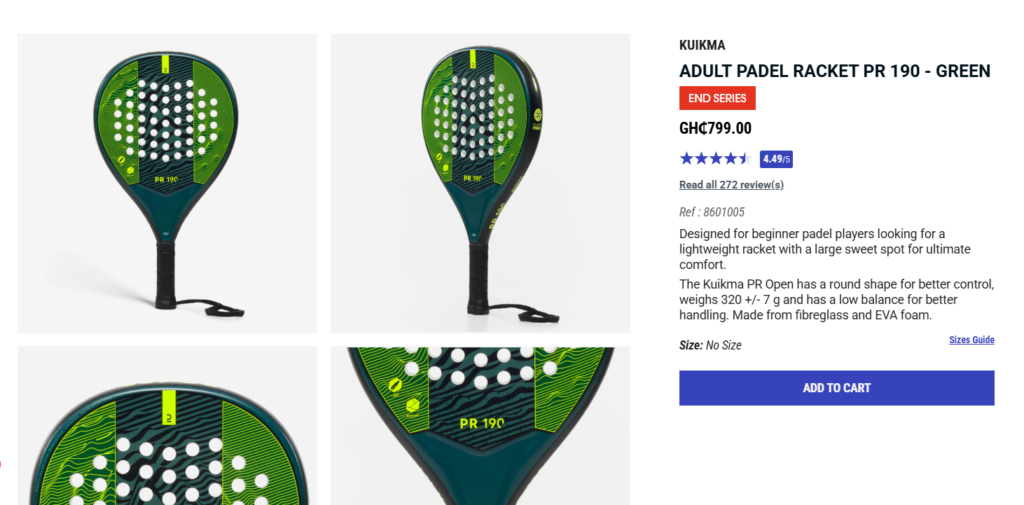In a section of Osu, a suburb of Accra, sits a new recreational space called the Aura Lifestyle Club. Not too far from the popular Jamestown coffee cafe, the club is the newest player in town for sports enthusiasts.
From the outside, it does not seem like much. But on the inside are various amenities, including a tennis-like court with a blue floor cover, surrounded by a metal cage.
But this court is not designed for tennis, but rather a sport called “Padel”.
The sport has been rapidly growing in Accra, with more and more people signing up for sessions and joining clubs.
For padel regulars like 35-year-old Omkar, who plays regularly at the Aura Lifestyle club, it’s a great mix of fun and exercise.
“It’s a great sport to get into especially to keep fit. It’s intense enough but not as intense as tennis. I highly recommend playing it,” he said.
Padel Explained
Padel originated in Mexico in the 1960s and gained popularity in Europe and South America. It’s played on an enclosed court about one-third the size of a tennis court, using solid rackets and a depressurized ball.
A regular padel court is approximately a third of the size of a tennis court. They are enclosed by fencing at the sides and toughened glass at the rear and the side walls.

To play padel, you’ll need a padel racket, which is distinct. It’s smaller and perforated (has holes) and not strung like a tennis racket.
The shape is often round, teardrop, or diamond-shaped.
They are made from a composite of materials like carbon fiber, fiberglass, or EVA foam for durability and shock absorption.

The sport itself is like a mix between tennis and squash. It can be played in doubles (2 vs 2) or one on one.
The scoring system is the same as tennis, with matches being a best of 3 sets. A set is won by the first team/player to win 6 games (must be ahead by 2).
In padel, the ball must bounce once on the ground before hitting the walls. Players can hit the ball after it bounces off the wall (on their side).
The ball is out if it goes out of the court, bounces twice, or hits the wall/fence directly without touching the ground.
Establishing The Sport of Padel in Ghana
The sport has been making strides professionally in the country. In February 2024, the Professional Padel Association of Ghana (PPAOG) was launched to regulate and promote the sport nationwide.

The association was officially recognised by Ghana’s National Sports Authority (NSA) at the launch event.
“We brought the sport to Ghana in November 2022 and we didn’t want to leave it just like that,” said Jean Said, the president of PPAOG at the launch event.
“We want to regulate [padel], develop it and create a championship, and a national team,” added Mr Said.
At the time, PPAOG stated that they had a membership of 700 individuals comprising professional, amateur, and leisure players. The association aimed to expand its ranks to 2,000 members by the end of 2024.
Expanding Infrastructure
As mentioned earlier, padel courts have sprung up across Accra, offering different options for players.
The S2 Sport Club (Padel Accra), located on Spintex Road, offers multiple courts and has been pivotal in hosting major tournaments.
Another court, Padel Club Ghana, is located in East Legon/Adjiringanor and features two double courts. It also offers coaching, a junior academy, and equipment sales.
Mamba Club Accra, another space in Labone, features three courts and integrates a café experience, allowing spectators to enjoy matches while dining.
The SMAC Sports Center, located within the Casa Trasacco premises near the city’s Accra Mall, houses multiple sports like basketball and table tennis as well as a padel court, which can be played by singles or doubles.

By estimation, more than 10 padel courts are currently in operation across the city, including East Legon, Spintex, and Labone.
Most padel court sessions can be booked in person or online through a mobile app powered by Matchpoint, a sports management company based in Europe.
High Costs Could Slow Down Padel’s Growth
Although the sport is growing, the cost to play could be a high barrier to entry for the average Ghanaian.
A padel racket can cost anywhere from 800 GHC to 3000 GHC for the high-end professional rackets.

If you can’t afford a racket, you can rent one at most of padel court facilities. Rentals cost between 100 – 200 GHC for a session.
After getting a racket, reserving a space could also hit your wallet hard. Most courts charge on average 200 GHC per hour to use their courts.
The cost of playing padel regularly every week for an individual could run up to 1400 GHC per month.
For padel players like Victor, a 48-year-old who plays occasionally, the cost is a little much on the high side.
“It’s too expensive. It needs more mass appeal and cheaper access to courts,” he said.
Can Padel Become One of Ghana’s Favorite Sports?
Despite the pricing setbacks, can padel evolve to become a bigger sport in Ghana?
In a Google Trends search comparing tennis and padel for the past 90 days, tennis is still by far the most dominant sport according to what people are searching for in Ghana.
However, with the establishment of the PPAOG and the continuous development of facilities across Accra, padel could become a staple in Ghana’s sporting landscape.
However, cost could be a hindrance for most prospective players. Managers of padel courts need to find a way to bring in more players through creative pricing. Low or affordable pricing could be the key to unlocking more mass appeal for the sport.





